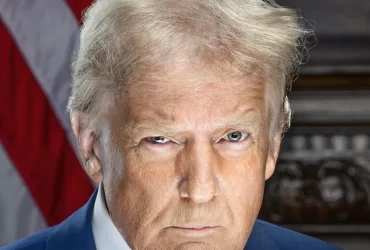Securities and Exchange Commission (BLK), a global investment giant, recently made a significant stride in the cryptocurrency space by officially announcing the acquisition of $100,000 in “seed capital” for its highly anticipated Bitcoin (BTC) exchange-traded fund (ETF). This revelation was unveiled in a comprehensive filing submitted to the U.S. Securities and Exchange Commission (SEC), marking a pivotal moment in the intersection of traditional finance and the burgeoning digital asset landscape.
The investor spearheading the seed capital commitment demonstrated their confidence in BlackRock’s ETF venture by agreeing to purchase $100,000 worth of shares on October 27, 2023. Subsequently, the transaction materialized as the investor took possession of 4,000 shares, each priced at $25.00 on the aforementioned date. These initial shares, aptly termed “seed shares,” symbolize the foundation upon which BlackRock aims to build its innovative iShares Bitcoin Trust.
The Securities and Exchange Commission Trust proposed by BlackRock distinguishes itself by opting to invest directly in Bitcoin rather than utilizing futures contracts tied to the leading cryptocurrency. This approach aligns with a strategic move to enhance the authenticity and transparency of the ETF, a departure from the prevalent trend of using futures to gain exposure to digital assets. Notably, BlackRock’s application is one among thirteen awaiting regulatory approval, positioning it at the forefront of a transformative shift in the investment landscape.
To comprehend the significance of seed capital in the context of ETFs, it is imperative to delve into the mechanics of how these financial instruments come into existence. Seed capital serves as the lifeblood during the initial stages, facilitating the creation of units that underlie the ETF. In essence, it kickstarts the process that enables the offering and subsequent trading of shares on the open market, providing investors with a vehicle to gain exposure to the underlying asset.
As BlackRock navigates the regulatory landscape with its proposed iShares Bitcoin Trust, the industry eagerly awaits the SEC’s decision on the pending applications. The regulatory approval of a Bitcoin ETF has long been anticipated and is widely regarded as a watershed moment for the cryptocurrency market. Analysts from Bloomberg have expressed optimism, placing the likelihood of approval in January at a substantial 90%. This potential green light could pave the way for institutional and retail investors to access Bitcoin through a mainstream, regulated investment vehicle.
In More Detail
In the pursuit of additional insights, CoinDesk reached out to BlackRock to ascertain the identity of the seed capital investor. As of the time of this writing, responses from BlackRock were pending, leaving room for speculation and anticipation in the financial community. The involvement of key players in supporting the establishment of a Bitcoin ETF underscores the growing acceptance and integration of digital assets within traditional financial frameworks.
The broader implications of BlackRock’s move extend beyond the company’s individual pursuits. It reflects a broader trend in the financial sector, where established institutions are increasingly recognizing the potential of cryptocurrencies as legitimate and valuable assets. BlackRock, with its considerable influence and assets under management, serves as a bellwether for the industry, signaling a shift in perceptions and strategies within the traditional investment landscape.
The rise of Bitcoin and other cryptocurrencies has been marked by a series of milestones, from their emergence as niche assets to the current juncture where they are gaining acceptance on institutional platforms. BlackRock’s foray into the Bitcoin ETF space further validates the maturation of the cryptocurrency market, presenting a compelling case for its integration into mainstream investment portfolios.
While BlackRock’s iShares Bitcoin Trust awaits regulatory approval, the broader regulatory landscape for cryptocurrencies is undergoing continuous evolution. Regulatory authorities globally are grappling with the challenge of striking a balance between fostering innovation and ensuring investor protection. The potential approval of a Bitcoin ETF by the SEC could set a precedent for other jurisdictions, influencing their stance on embracing digital assets within regulated financial frameworks.
Investors and market participants are closely monitoring developments in the cryptocurrency regulatory landscape, recognizing the transformative impact regulatory decisions can have on market dynamics. The prospect of a regulated Bitcoin ETF introduces a new avenue for investors to gain exposure to the cryptocurrency market without directly holding the digital asset. This indirect exposure, facilitated through a trusted and regulated financial instrument, has the potential to attract a broader range of investors who may have been hesitant to navigate the complexities of digital asset custody and security.
As BlackRock’s iShares Bitcoin Trust navigates the regulatory approval process, it underscores the broader trend of institutional acceptance of cryptocurrencies. Institutions that were once cautious or skeptical are now actively exploring ways to incorporate digital assets into their portfolios. The rationale behind this shift is rooted in the recognition of cryptocurrencies as a legitimate asset class with unique properties and potential diversification benefits.
The evolving landscape also brings attention to the concept of spot Bitcoin ETFs, which differ from their futures-based counterparts. By directly holding Bitcoin, spot ETFs aim to provide a more authentic representation of the underlying asset’s performance. This approach aligns with the ethos of decentralization and ownership that underpins the appeal of cryptocurrencies. The shift towards spot ETFs reflects a desire for a more direct and transparent exposure to the actual asset, a departure from the indirect exposure offered by futures-based ETFs.
In conclusion, BlackRock’s disclosure of $100,000 in seed capital for its Bitcoin ETF represents a significant development in the evolving narrative of cryptocurrencies within traditional finance. The move signifies the intersection of two worlds—traditional finance and the rapidly maturing cryptocurrency market. As regulatory decisions loom and institutional interest continues to grow, the journey towards mainstream acceptance of digital assets accelerates, with BlackRock playing a noteworthy role in shaping the trajectory of this transformative journey.
Source: Coindesk


















